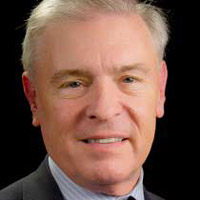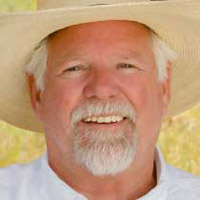Transitioning from Employee to Entrepreneur
Transitioning from Employee to Entrepreneur
If you are out of work, have you ever considered creating your own job? As of April 2013, 7.5% of the American population are unemployed. The downturn of the economy has led many to wonder where they are going to find work, but has also opened opportunities for many to start their own business. The transition from employee to entrepreneur is not easy. An entrepreneur’s path is rocky and more risk driven than that of an employee, but it is also more rewarding.
If you are ready to take on the challenge of transitioning from employee to entrepreneur, the following tips may help:
1) Make a plan.
What type of business do you want to start? What are your objectives? To begin, it may help to consider the following questions:
What do I want for myself?
What do I want for others?
What do I want for my business?
As you outline your business goals, your target market and your financial strategies you will be able to create a business plan. This plan will guide you as you start your own business.
2) Communicate with Others.
The next step towards becoming an entrepreneur is communication. How will you communicate your business plan to others? Networking is a great way to branch out. You can also use social media to publicize your business. Connecting with others on Linkedin or “tweeting” your latest business news will allow your name to become well-known. The key is to develop relationships in which your acquaintances will know you, like you and trust you.
3) Take Risks.
Entrepreneurs are willing to take risks. The McDonald’s franchise first started when an entrepreneur saw an opportunity to grow the McDonald’s restaurant that was started by two brothers in San Bernadino, CA. Was this move risky? Of course. In fact, the McDonald’s brothers weren’t even willing to do it. The outcome of the risk is obvious today as the franchises dot the globe[1].
It may be hard for you to step outside your comfort zone and take risks, but it is something that every successful entrepreneur must do. Look at each risk as an opportunity to learn and grow.
4) Be Accountable.
Accountability is an important factor in starting your own business. As a business owner, you are accountable for your business. Understanding the importance of accountability can help you to be more efficient in how you use your time. A client does not want to pay you for doing anything. With accountability, tasks are accomplished and needed changes are made to increase service, productivity and quality.
Our firm has developed a system of accountability where each employee reports to an advisor. Their personal progress is tracked so that improvements can be made. Developing a system of accountability within your business will be beneficial.
As you start your own business, each step you take towards becoming an entrepreneur will bring you closer to becoming self-reliant, leading you to greater wealth, happiness and success.
—————————————————————————————————————————————————————————————————————
We hope you found this article about “Transitioning from Employee to Entrepreneur” helpful. If you have questions or need expert tax or family office advice that’s refreshingly objective (we never sell investments), please contact us or visit our Family office page or our website at www.GROCO.com. Unfortunately, we no longer give advice to other tax professionals gratis.
To receive our free newsletter, contact us here.
Subscribe our YouTube Channel for more updates.

Alan Olsen, is the Host of the American Dreams Show and the Managing Partner of GROCO.com. GROCO is a premier family office and tax advisory firm located in the San Francisco Bay area serving clients all over the world.
Alan L. Olsen, CPA, Wikipedia Bio

GROCO.com is a proud sponsor of The American Dreams Show.

The American Dreams show was the brainchild of Alan Olsen, CPA, MBA. It was originally created to fill a specific need; often inexperienced entrepreneurs lacked basic information about raising capital and how to successfully start a business.
Alan sincerely wanted to respond to the many requests from aspiring entrepreneurs asking for the information and introductions they needed. But he had to find a way to help in which his venture capital clients and friends would not mind.
The American Dreams show became the solution, first as a radio show and now with YouTube videos as well. Always respectful of interview guest’s time, he’s able to give access to individuals information and inspiration previously inaccessible to the first-time entrepreneurs who need it most.
They can listen to venture capitalists and successful business people explain first-hand, how they got to where they are, how to start a company, how to overcome challenges, how they see the future evolving, opportunities, work-life balance and so much more..
American Dreams discusses many topics from some of the world’s most successful individuals about their secrets to life’s success. Topics from guest have included:
Creating purpose in life / Building a foundation for their life / Solving problems / Finding fulfillment through philanthropy and service / Becoming self-reliant / Enhancing effective leadership / Balancing family and work…

MyPaths.com (Also sponsored by GROCO) provides free access to content and world-class entrepreneurs, influencers and thought leaders’ personal success stories. To help you find your path in life to true, sustainable success & happiness. It’s mission statement:
In an increasingly complex and difficult world, we hope to help you find your personal path in life and build a strong foundation by learning how others found success and happiness. True and sustainable success and happiness are different for each one of us but possible, often despite significant challenges.
Our mission at MyPaths.com is to provide resources and firsthand accounts of how others found their paths in life, so you can do the same.
Why Startups Need Legal Counsel | Jackie Ammon
About Jackie Ammon Jackie Ammon is a senior associate who focuses her practice on corporate matters at WilmerHale. Prior to joining WilmerHale, Ms. Ammon was a judicial extern for the Honorable Frederick F. Mumm of the US District Court for the Central District of California. In that role, she wrote Report and Recommendation for…
The 10 Laws of Trust | Joel Peterson
About Joel Peterson Joel Peterson is Chairman of JetBlue and a consulting Professor at the Stanford Graduate School of Business. Together along with David Kaplan he authored The 10 Laws of Trust, a business leadership book about building high-trust organizations. Mr. Peterson is the former managing partner of Trammel Crow, one of the top leading…
LuLaRoe – Disrupting The Retail Market | Mark Stidham
Transcript of LuLaRoe – Disrupting The Retail Market | Mark Stidham: Alan Olsen: Mark Stidham is the CEO of LuLaRoe, a direct to consumer clothing company that he and his wife DeAnne started in 2013. Since it’s inception it has been transforming the fashion. Mark Stidham: I grew up with my Dad being a…
Udacity-Democratizing Education | Sebastian Thrun
About Sebastian Thrun Founder of Udacity Sebastian Thrun is a scientist, educator, inventor, and entrepreneur. He is the founder, chairman, and president of Udacity, whose mission is to democratize education. Udacity focuses on affordable, lifelong learning to give people the needed skills to get a new job or advance their career. Today, the company has…




